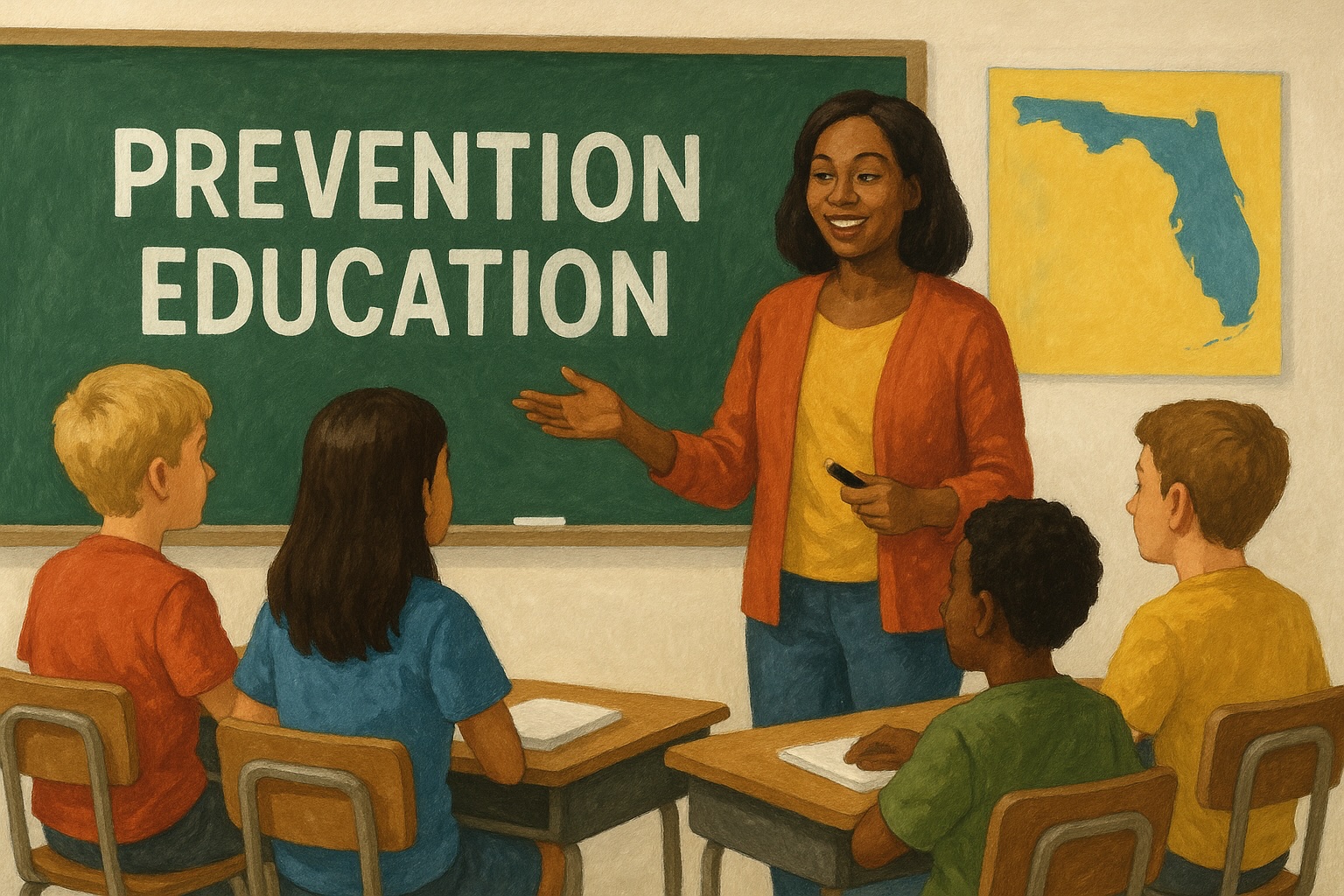Prevention Education Expands in Florida Schools
Florida schools are adopting prevention education to teach consent, healthy relationships, and respect to reduce domestic violence long-term.

Florida educators are expanding prevention education programs in schools, teaching students about consent, healthy relationships, and bystander intervention. Advocates stress that prevention is the most effective long-term strategy to end domestic violence.
What Students Learn
Consent Basics: Clear communication and respect for boundaries.
Healthy Relationships: Trust, equality, and open communication.
Warning Signs: Identifying red flags of controlling or abusive behavior.
Bystander Training: How to safely intervene when friends are at risk.
Why It Matters in Florida
Florida ranks among the top states for DV-related homicides.
Education reduces reliance on crisis services later in life.
Prevention programs change cultural attitudes toward gender and power.
Programs in Action
Coaching Boys Into Men piloted in Miami-Dade schools.
Expect Respect integrated into Central Florida school districts.
Partnerships with nonprofits bring survivor speakers into classrooms.
Conclusion
By teaching prevention early, Florida is investing in future generations. Schools are proving that cultural change begins in the classroom.
FAQs
What is prevention education?
School programs that teach consent and healthy relationships.Why is it important in Florida?
The state has high DV homicide rates, making prevention critical.What ages are targeted?
Primarily middle and high school students.What programs are used?
Coaching Boys Into Men and Expect Respect.What’s the long-term goal?
Cultural change that reduces domestic violence.
